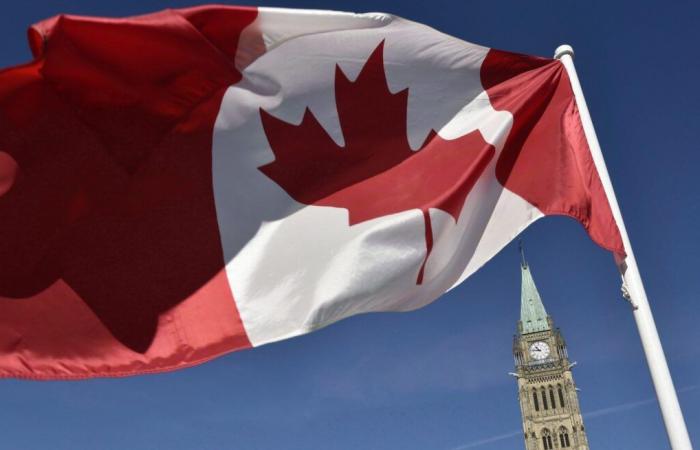At a time when politics media coverage is practiced a lot in digital space, and when Trump’s customs and threats of annexation lead to an increase in Canadian patriotism, it is interesting to look at how the leaders of political parties are positioned.
What Canada do they sell to us while Trump’s shadow hovers on the electoral campaign? And what is the place of Quebec in all of this? We will answer these questions through an analysis of discourse and the rhetoric of the two leaders who have a credible chance of becoming Prime Minister, Mark Carney and Pierre Hairyvre.
Le Canada de Carny
In one of his campaign videos, Carney says he aspires to “build the future” and to “build bridges that unite us”. The message conveyed in this video remains consistent with the rest of the discursive strategy of its campaign.
While the housing crisis is raging, Mark Carney promises to build houses and says that “we are going to build Canada”. This metaphor is interesting, because beyond the houses, it is a question of building a new country, a country that will be built with people.
The Liberal chief puts forward job prospects in specialized trades in order to “build a strong Canada”. Carney sells us a plain Canada, which forms a great whole; It is at the heart of his campaign, which promises to “create a single Canadian economy”.
Canada imagined by Carney is like its discursive strategies: the use of action verbs brings the proactive side, the use of “We” conveys the idea of inclusive and united Canada, and the choice of words with positive tones evoke possibilities for some, a utopia for others, with a temporality turned to the future. Canada as it is imagined by Carney is a booming country, which will materialize thanks to everyone’s work.
The outgoing Prime Minister thus sells us an idea of growth with the prospect of jobs, as well as a Canadian living together reinforced by a feeling of belonging. If union is strength, it also has a price: that of a certain autonomy of the provinces.
-Quebec is no exception to the rule; If his cultural identity is valued by Carney, which stipulates that “Quebec culture is at the heart of Canada’s identity”, we can see in this message that Quebec is also part of the Canadian all.
Canada Hairy Canada
Pierre Hairyvre has difficulty getting out of the speech and clips that he has already repeated for more than a year (” Axe the Tax »For example). His campaign slogan, “Canada first – to change”, does not leave the beaten track.
His speech is strong and decided. The conservatives will: “abolish”, “cut”, “attack” and “fight”. His Canada will be that of the law and the order. He uses the slogan ” Three Strikes and You’re Out », Borrowed from the vocabulary of baseball, to promote its plan aimed at preventing criminals recognized as guilty of three serious offenses from benefiting from a deposit.
Canada imagined by Hairyvre is the one who takes up his “just” rights; A Canadian Canadian Canadians, who can afford a “beautiful” home and secure their future.
And Quebec in all of this? There is an example to follow for Hairyvre: “I think we should learn from Quebec. Quebecers ride their flags, sing their songs, [transmettent] Their history and do not apologize for their heritage … “We do not know more about the treatment that Quebec will have in its government.
Could the Canada of these chefs be imagined without the Trump era? If politicians sell us an imagined country, Canada which takes shape is ultimately still vague. We will therefore see which country will be looming during the mandate of the next Federal Prime Minister.
Will it be in accordance with collective vision? Above all, beyond the imaginations carried by electoral promises with worked rhetoric, which will be the reality ” outside the box »? In short, what Canada will we inherit after April 28?







